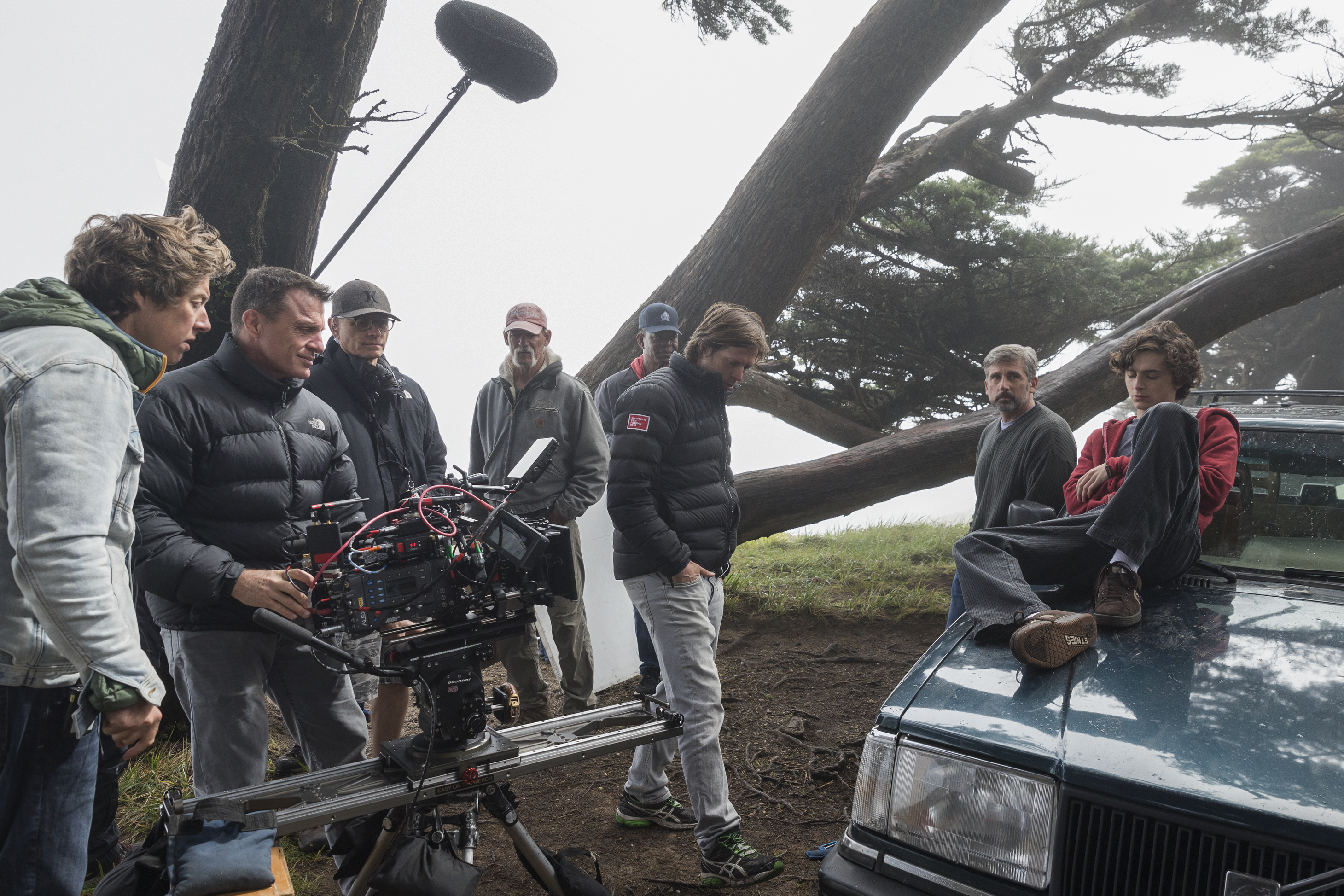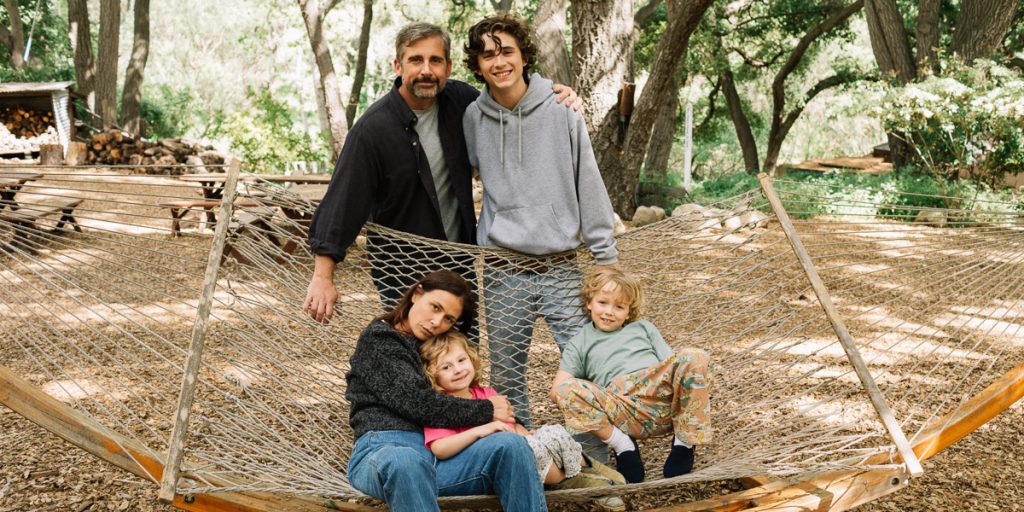
Felix Van Groeningen sat down with Solzy at the Movies during a roundtable interview to discuss his new film, Beautiful Boy, starring Steve Carell and Timothée Chalamet. The film tells the story of a father and son, David and Nic Sheff.
With having two books being the source material, how easy was it to weave these two narratives together and still tell a coherent story?
Felix Van Groeningen: What helps is that it’s two points of view of the same story more or less. I thought it was a challenge—absolutely—but it’s what made it unique, too. The hard work was just boiling it down. One book is a lot to put into a movie. Often you have to throw away a lot. With two books, that’s an even harder job. What we did was really dissect the books and made timelines of both books so we could figure out what the bigger picture was. But then you start to forget it and really find the arc of David, which is the mythical journey of the father trying to save his son and to see how it had change in order to stay interesting—what were the different phases and then to intersect that with Nic’s arc. During each cycle, what do the characters learn about themselves, about the other, how does it effect their relationship, and what do they learn about addiction? Getting all of those things aligned and balanced was a trick because a book—it’s all in the book. It’s just that it’s scattered around and it’s so much that it just takes a lot of meticulous work to get it streamlined.
Steve Carell comes back this big comedy background. You were able to get him playing against type.
Felix Van Groeningen: But he’s done it before. I guess it wasn’t unique casting in that sense. I was sure that he was able to do that. I think he’s an incredible actor. I really do. He can make any character he plays relatable—and even unlikable, you can relate to them. He has that ability. Another thing that was important for me was who he was in real life and it sort of overlapped with what I thought David should be. I wanted the actor who played David to keep close to himself. Steve did that but also masterfully crafted and kept it very constrained yet there’s so much going on inside.
Beautiful Boy serves as your English language film debut. At what point in your career did you decide that it was time to make one in the English language?
Felix Van Groeningen: It took many years but it started with a film I had in Cannes and meeting a US manager, who I started working together with and introduced me to the English-speaking market and producers. It took years. I only wanted to do it if it all felt really right. I needed time to grow as a filmmaker, to grow confident in working and writing in English, too. This crossed my path and it had—the team spoke to me. The family spoke to me. It had its challenges. It sort of had a lot of elements that fascinated me and I knew that I would be down to spending the years of my life telling the story and finding a way to make it work.
Is there something that you want the audience want to take away as far as a message in watching the film?
Felix Van Groeningen: I’m really inspired by the unconditional love of this family for one another. I hope the movie emits that.

I thought it was so beautiful how Steve Carell starts singing “Beautiful Boy” and then the film beautifully segues into John Lennon singing. Did I read where David Sheff had the chance to interview John?
Felix Van Groeningen: He did the last interview with John Lennon before he died. It’s a book. It’s actually really beautiful. He spent a lot of time chasing him and then he got really close with John and Yoko afterwards.
We were talking during the press reception about the initial cut, which you said was about four hours long. What was the process of getting this narrowed down to the final cut?
Felix Van Groeningen: All my films are at least four hours long for the first cut. It’s very normal. It’s always pretty obvious in the beginning. There’s always at least an hour you can drop. It’s about refining stuff—cutting heads and tails and then starting to take out scenes to see how the structure that you had in mind can work emotionally. Going from paper to an actual film, it’s always the same thing especially with my films—there’s the scenes that most of the times that I’m really happy about but something in the flow that doesn’t work when you see the first cut or even the second or third. It takes a while to get there. It’s really about finding the emotional logic of the film. Whereas on paper, there is often a more cerebral approach to how you structure a film. You need to do that to find a true line, to find a theme, to find the payoff of things, and then you realize in the end that it’s all there but it’s too cerebral—we’ve got to find the emotional flow of it and that’s a trajectory.
Is there a scene that you really struggled to cut out of the film?
Felix Van Groeningen: There was one really amazing scene with Steve but it would be too much. I usually don’t have a hard time with cutting out stuff. If it’s good, it’s good. It’s such a crazy thing to experience in the beginning when you’re making films. You don’t experience it as a joy but as torture—like, “Oh, no, the scene isn’t in there. I’m going to miss it so much!” As you get more experience as a filmmaker, you start to look at it with more distance. When the scene is not there and the movie’s better, it’s like, “Great! Amazing!” It always seeps into the rest. Usually, it means that it’s not really necessary and taking it out does more work than leaving it in there. That’s a fascinating thing about editing and why I really love it as part of the filmmaking process.



